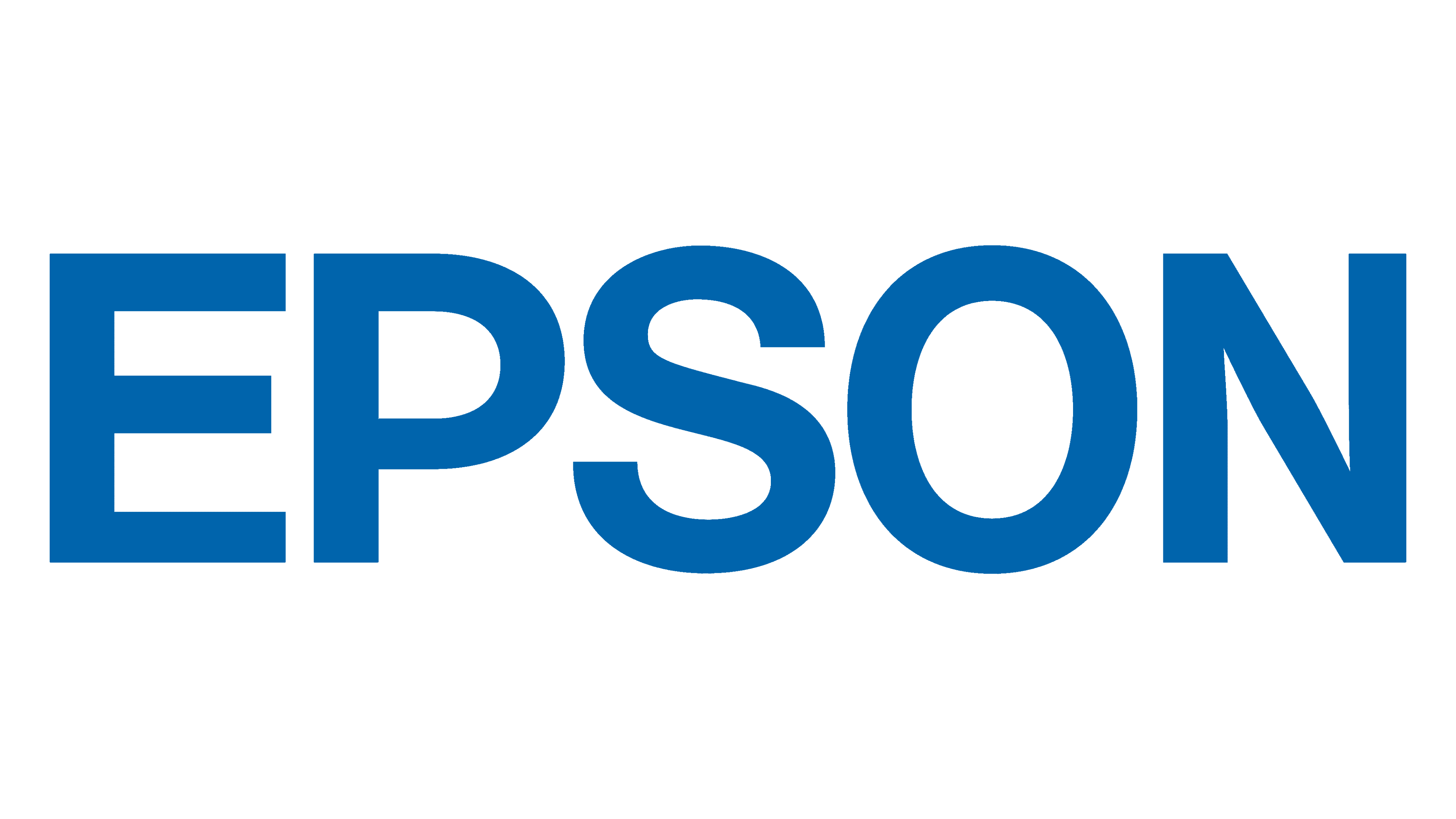Epson Logo
Epson, a renowned global technology company, primarily focuses on manufacturing and marketing innovative printing solutions, including inkjet, dot matrix, and laser printers, as well as scanners, desktop computers, business, multimedia and home theatre projectors, large home theatre televisions, robots and industrial automation equipment, point of sale docket printers and cash registers, laptops, integrated circuits, LCD components, and other associated electronic components.
Headquartered in Japan, it has a significant presence in various global markets. While it operates independently, it is a subsidiary of the Seiko Group. Epson is known for its commitment to sustainability and eco-friendly products.
Meaning and history
The genesis of Epson traces back to the wartime era in 1942, under the umbrella of Daiwa Kogyo, Ltd., in the picturesque setting of Nagano, Japan, aligned with the Seiko Group’s watchmaking expertise. This era was characterized by a focus on precision and craftsmanship in timepieces.
Epson’s transformation began in the 1960s, a pivotal period where it ventured beyond horology into the burgeoning realm of printing technology. A landmark development occurred in 1968 with the unveiling of the EP-101, a pioneering mini-printer. This innovation not only steered the company’s future direction but also inspired its name, Epson – a nod to the EP-101 being the “son” of the EP series.
The subsequent decades, particularly the 1970s and 1980s, were defined by Epson’s trailblazing advancements in printing technology. 1978 marked a turning point with the introduction of the Epson TX-80, a dot matrix printer that resonated with the expanding computer industry. The 1980s consolidated Epson’s reputation with the widespread adoption of the Epson LX-800, a benchmark in dot matrix printing.
As the 1990s dawned, Epson broadened its technological horizons, making significant inroads into color inkjet printing with the Epson Stylus series, distinguished by its proprietary Micro Piezo technology. This period also saw Epson diversifying into related domains such as digital scanners and projection systems.
Entering the 2000s, Epson, while remaining a part of the Seiko conglomerate, carved out a distinct identity, focusing intensively on refining its expertise in printing and imaging technologies. This era also saw Epson branching into robotics and sophisticated electronic components, reflecting its enduring commitment to cutting-edge innovation.
The 2010s heralded a new chapter centered on environmental stewardship. Epson’s foray into eco-friendly manufacturing and product designs, exemplified by the EcoTank printers, underscored its dedication to sustainability.
Navigating through global economic shifts and competitive market pressures, Epson has sustained its growth and prominence in the technology sector. Today, it stands as a testament to innovation and environmental consciousness, continually adapting to the evolving technological landscape while maintaining its historical ties to the Seiko legacy.
What is Epson ?
Epson, originating as a division of the Seiko Group, emerged as a forefront innovator in printing and digital imaging technology. Renowned for its pioneering advancements in inkjet printers, scanners, and projectors, Epson blends cutting-edge technology with a commitment to environmental sustainability, distinguishing itself in the global tech landscape.
1975 – Today
The logo is a stark, minimalist design composed of a bold, all-caps typeface. The letters “EPSON” are displayed in a rich, solid blue hue that stands out with confidence and simplicity. The font is modern and sans-serif, with clean lines and even spacing, exuding a sense of clarity and precision. Each character is constructed with balance, suggesting stability and reliability. The absence of any embellishments or icons emphasizes the company’s focus on straightforwardness and efficiency. This typographic approach reflects a corporate identity that values technological innovation and practical design.











